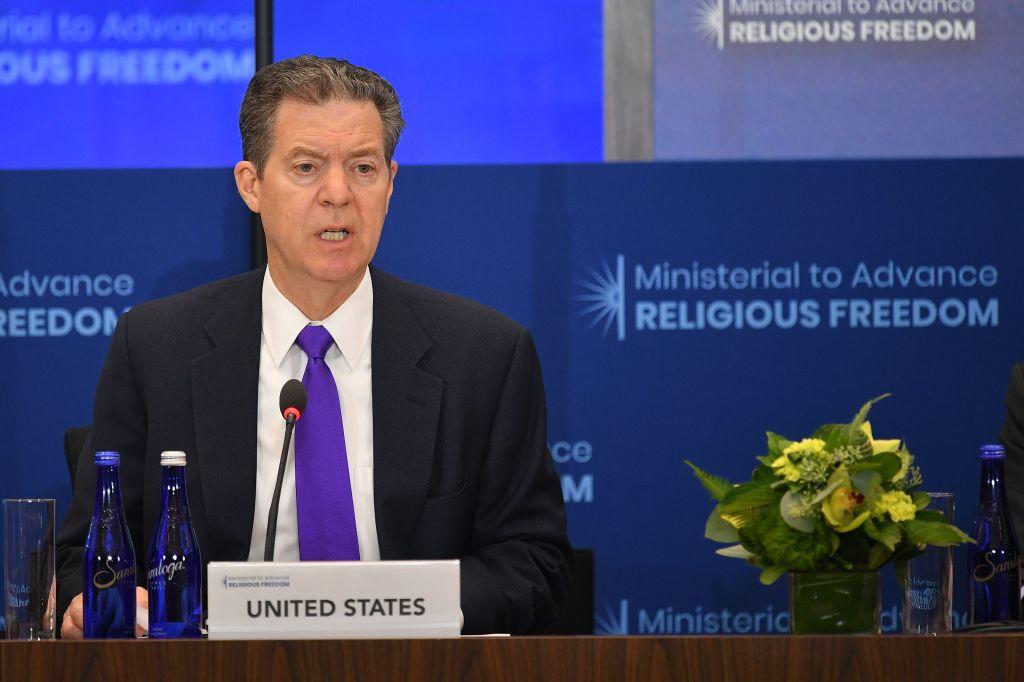Chinese tech companies involved in the oppression of Uyghurs in the northwestern region of Xinjiang could be subjected to U.S. sanctions, U.S. Ambassador-at-Large for International Religious Freedom Sam Brownback said in an interview.
The Chinese regime monitors Uyghurs in the northwestern region of Xinjiang through a sprawling surveillance system that includes an extensive network of security cameras, many enabled with facial-recognition and night-vision capabilities, and frequent security checkpoints.
The U.S. State Department and experts have estimated that more than 1 million Uyghurs and other Muslim minorities are detained in internment camps in the region, as part of the regime’s crackdown on “extremism.”
Brownback said the issue of sanctions on Chinese tech companies involved in mass surveillance in Xinjiang was brought up during a recent meeting with Chinese rights advocates alongside U.S. Vice President Mike Pence.
Falun Gong, also known as Falun Dafa, is a meditation practice with spiritual teachings that has been persecuted by the Chinese regime since 1999.
The advocates reportedly urged the Trump administration to sanction Chinese officials involved in the religious persecution, as well as Chinese companies that have helped the regime build surveillance systems to carry out its oppression.
Brownback told Nikkei that advances in surveillance technology and artificial intelligence may transform how the regime suppresses religious groups.
Local authorities also compile “blacklists” for individuals with bad credit scores, who are then banned from services such as boarding a plane or buying a train ticket.
The system, parts of which were rolled out in 2014, is set to be implemented across all of China in 2020. Critics, however, have voiced concern that the surveillance could be used by authorities to track political targets or dissidents.
“So, what you end up having is a system where individuals are marginalized from participating in the economy and in the culture,” Brownback said.





